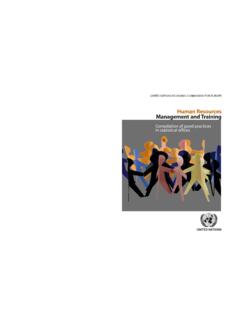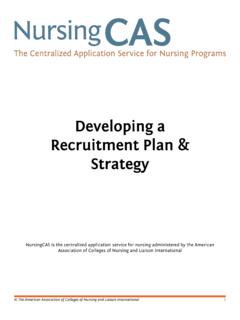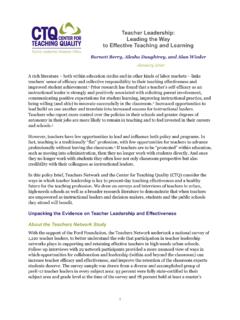Transcription of Sc h o o l P l a n G u i d e l i n e s ... - Educate Together
1 School PlanningDeveloping aSchool PlanGuidelines forPrimary SchoolsSchool PlanningDeveloping a School PlanGuidelines for Primary SchoolsAn Roinn Oideachais agus Eola ochtaDepartment of Education and ScienceIreland Government of Ireland 1999 Designed by Brian Kelly Design AssociatesPrinted by Bookfield Printing CompanyContentsChapterTitlePageForeword4 Acknowledgements51 Introduction62 The school plan73 First steps in school planning104A model for school planning145 School philosophy and aims186 School context factors217 School policy - organisation238 Staff development289 Home-school partnership3010 School policy - curriculum3211 School evaluation35 Appendix 1:School curriculum questionnaire38 Appendix 2:School development planning in mathematicsAppendix 3:General questionnaire on reviewingand planning organisational issuesAppendix 4:Techniques for group-work on schooldevelopment planningAppendix 5: Guidance on formulating a genderequality planAppendix 6:Guidance on formulating an informationand communication technology plan for a schoolAppendix 7:Guidance on formulating a policy topromote environmental awareness and careAppendix 8:Section 21 Education Act 1998 developing a School PlanGuidelines for Primary SchoolsPage 339414249525862 ForewordForeword by the Minister for Education and Science,Mr.
2 Miche l Martin, TDSchools are unique communities bringing Together diverse individuals in order to help childrendevelop to their full potential. Schools face many challenges and planning to meet these challengesis a vital part of the school s work. These Guidelineshave been developed and published to help withthis educational needs of our children must act as the principal stimulus for educators to guideall school planning for the welfare of our pupils in the years that lie ahead. I am confident thatthese Guidelineswill contribute substantially to the work of schools in planning for the futureand in adapting to change, while still retaining commitment to the values and standardswhichhave been part of primary education in Ireland for decades. The Guidelinesare part of a packageof supports/resources on school development planning which I am putting in place for all primaryand second-level schools.
3 The publication of the Guidelinesis timely in the context of the recent Education Act. TheGuidelineswill help schools to fulfil their duties as outlined in the Act. The aim of the Guidelinesis to assist schools in delivering quality in their own educational settings. They will help teachersto look at their own schools, to review what is currently taking place, and to influence and toguide the development of the School Plan. The Guidelinesplace a particular emphasis on collaborationwithin the entire school wish to express my gratitude to all who played a part in the preparation and production of theseGuidelines. In that regard, I wish to thank especially the representatives of the Irish NationalTeachers Organisation, Catholic Primary School Managers Association, National Parents Council Primary, Association of Primary Teaching Sisters, Church of Ireland Board of Educationand the Teaching Brothers Association who worked on the Consultative Committee during thepreparationof the Guidelines.
4 School development planning provides, I believe, an exciting opportunity for helping our schoolsto take ownership of their development. I and my Department will do everything we can to assistschools in their l MartinPage 4 developing a School Plan Guidelines for Primary SchoolsAcknowledgementsA considerable number of people were involved in the design and compilation of this publication, developing a School Plan: Guidelines for Primary particular, the contribution anddedicated commitment of the following are gratefully acknowledged: Members of the Consultative Committee John Carr, Assistant General Secretary, Irish National Teachers Organisation Ita McGrath, Irish National Teachers Organisation Gerry Malone, Irish National Teachers Organisation David Meredith, The Board of Education of the General Synod of the Church of Ireland Anne Colgan, National Parents Council Primary Sr.
5 Evelyn Byrne, Association of Primary Teaching Sisters An Br. P. Mac Aog in (Deceased), Teaching Brothers Association Br. Robert Hanley, Teaching Brothers Association Sr. Eileen Randles, Catholic Primary School Managers Association Gabriel Harrison, Assistant Chief Inspector, Department of Education and Science Se n Mac Conmara, Divisional Inspector, Department of Education and Science M che l Conghaile, Inspector of Schools, Department of Education and ScienceThe work of the Evaluation Support and Research Unit, Department of Education andScience, in the preparation of this publication is also gratefully a School Plan Guidelines for Primary SchoolsPage 5 Chapter primary education today, much greater emphasis is placed on viewing the work of the schoolas a single unit rather than on considering it as a group of individual independent , corporate and co-operative planning has become a commonfeature in the workof many primary schools.
6 This has found particular expression in the development of school plansin a very large number of valuable contribution which school planning can make to schools has been formallyrecognisedby a wide range of educational interests. For some time, the practice of formulatingschool plans has been endorsed and promoted by the Department of Education and Science, theIrish National Teachers Organisation, the National Parents Council-Primary and the managerialbodies. The availability of published documentation from education centres as well as fromteachers unions has contributed substantially to the implemention of school planning within agrowing number of schools. These developments are reflected in section 21 of the Education Act,1998where the important role that school planning can play in promoting effective schools isrecognised by making it incumbent on all boards of management to arrange for the preparation,dissemination and review of school plans.
7 (A copy of the relevant section is contained inAppendix 8 of these Guidelines). is intended that developing a School Plan: Guidelines for Primary Schoolswill serve as aresource for schools as they seek to advance the process of school planning. The purpose of theGuidelinesis to assist the principal and teachers in a primary school to producea School Planinconsultation with the board of management and with the parents of the pupils attending theschool. As every primary school is unique (in relation to its staffing, its pupils, its support structuresand the availability of resources) the strategiesemployed for preparing and producing a SchoolPlanwill vary from school to development of a School Planwill take time. It is essential, therefore, that time is madeavailable for this purpose so that planning can become an integral part of the life of the 6 developing a School Plan Guidelines for Primary SchoolsChapter 2 The School need for a School PlanIt is accepted that the most effective organisations are those which place a great emphasis onclarifying their aims and objectives, as well as engaging in corporate, collaborative and comprehensiveplanning in order to achieve those aims and objectives.
8 The school is also an organisation and likewise needs to be effective . In order to be so, it needs toenable all its partners to join in the clarification and statement of its aims and objectives and toagree on strategies to achieve them. School-based planning is the most important means throughwhich this is done. To assist the school in becoming effective and in promoting school improvement, a strategy isnecessaryto harmonise the sometimes differing expectations of teachers, boards of managementandparents. Collaborative school planning and the production of a School Plancan provide aframework for the development of such a the School Planwill ensure adherence to the school s own aims and objectives, it will alsoenable all partners to be aware of and to subscribe to the stated over-arching aims of the educationsystem as expressed by statute in curriculum guidelines in the circulars of the Department of Education and Science in accepted national policy reports and of the School PlanThe School Planhas as its essential purpose the achievement of school effectiveness as well asbeing a significant support for school improvement.
9 It will help the school to realise its statedaims and objectives which will be firmly directed towards meeting the present and anticipatedneeds of the pupils. It will help to ensure quality in teaching and learning throughout the helping to achieve effectiveness, the School Planwill direct attention towards those areas ofschool activity which are accepted as being essential in ensuring a School Plan Guidelines for Primary SchoolsPage 7 Page 8 developing a School Plan Guidelines for Primary SchoolsFeatures of effective schoolsThe following are regarded as important features of schools which are effective : purposeful leadership by the principal curriculum planning and development appropriate communication structures teacher/classroom preparation intellectually challenging teaching an environment in the classroom which is conducive to learning a positive climate parental involvement assessment and record keeping consistency in the implementation of agreed School Planwill serve as a basis for the work of the school as a whole and also for evaluatingand reporting on whole school progress and of the School PlanWhat is a School Plan?
10 The School Planis a statement of the educational philosophy of the school, its aims and how itproposes to achieve them. It deals with the total curriculum and with the organisation of theschool s resources, including staff, space, facilities, equipment, time and finance. It includes theschool s policies on such key issues as:pupil assessment, special needs, record-keeping, staffdevelopment, teachers preparation, homework, the code of behaviour, home-school links, equalopportunities in the curriculum for girls and boys, intercultural education, health and safety does a School Plan contain?A School Plancontains twomain sections. The firstsection deals with the total curriculum to beimplemented in the school. Thesecondsection describes a range of policies and practices whichlargely have to do with administrative aspects of school life. Some of these policies will changevery little from year to School Plan and school developmentThe School Planis concerned with the creation of realistic targets which lead, if achieved over aperiod of time, to improvements in the education offered to children.








